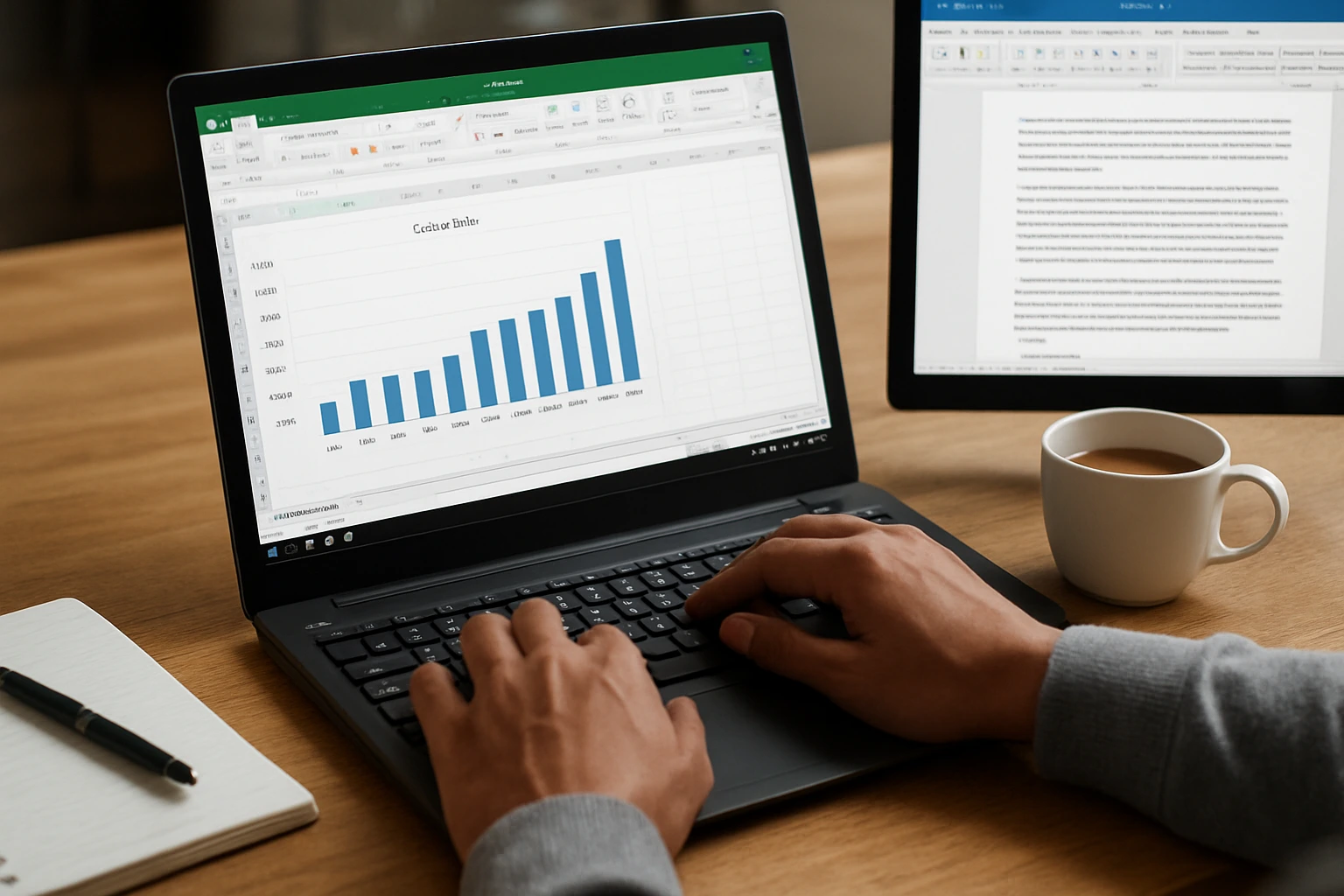Redmond Washington: Microsoft is introducing a new artificial intelligence powered feature called vibe working across its Office suite, bringing conversational, automated productivity to Excel and Word.
The company unveiled Agent Mode, a tool embedded within Microsoft 365 Copilot, designed to generate complex spreadsheets, documents, and even PowerPoint presentations from simple text prompts.
The initiative, built on OpenAI’s GPT-5 model and Anthropic’s reasoning models, marks a significant shift in how Office apps handle complex tasks moving beyond assistance toward full task automation.
The Microsoft vibe working concept builds on the growing trend of vibe coding where non technical users create applications using simple prompts rather than code.
Inspired by that approach, Microsoft’s Office team aims to make document and data creation accessible through natural language conversations.
Sumit Chauhan, corporate vice president of Microsoft’s Office Product Group, said the feature brings “agentic productivity” to Office apps.
In the same way vibe coding has transformed software development, the latest reasoning models in Copilot unlock agentic productivity for Office artifacts, Chauhan said.
Agent Mode extends Microsoft’s earlier Copilot integrations, which added AI powered writing and summarization features to Word and Excel.
Unlike traditional Copilot responses, Agent Mode can plan, reason, and execute multi step workflows inside documents or spreadsheets, showing its actions in real time.
Industry analysts say Microsoft vibe working reflects the company’s long term vision of embedding generative AI deeply within productivity tools.
This move positions Microsoft at the forefront of AI driven productivity, said Elaine Porter, a senior analyst at TechFront Research.
By combining OpenAI’s GPT-5 reasoning with Anthropic’s structured agents, they’re creating a system that can think through a process and deliver boardroom ready content with minimal input.
Porter noted that the technology could particularly benefit professionals in finance, consulting, and operations sectors heavily reliant on data and documentation.
Agent Mode doesn’t just automate tasks; it interprets intent and manages complexity. That’s a big leap from past AI assistants, she said.
According to Microsoft’s internal testing, Agent Mode reduced document preparation time by 60 percent in early pilot programs and improved user satisfaction by 45 percent compared with traditional Copilot tools.
By contrast, conventional AI writing tools typically offer isolated suggestions, while Microsoft vibe working introduces a continuous, interactive dialogue.
For instance, users can request, Create a quarterly sales report comparing Q1 and Q2 performance, and the agent will retrieve data, generate charts, summarize insights, and format the document automatically.
Competitors like Google Workspace and Notion AI have launched similar assistants, but experts say Microsoft’s multi agent reasoning, powered by GPT-5, gives it a distinctive edge in handling complex, multi step workflows.
For many users, the appeal lies in reducing the friction of mastering complex tools. “I used to spend hours learning formulas and formatting reports,” said Olivia Zhang, a small business owner in Seattle.
Now with Microsoft vibe working, I just describe what I need, and Excel does the heavy lifting. Corporate users are also optimistic about the feature’s potential to standardize workflows.
Our team generates dozens of board reports each month, said David Ramirez, operations director at a logistics firm. “Agent Mode feels like having a digital analyst who never gets tired.”
However, some experts caution that reliance on automation could create oversight challenges. “When AI handles multi-step reasoning, it’s crucial for organizations to validate outputs,” warned Kevin Harris, an AI governance consultant.
Transparency features showing each task step, as Microsoft promises, will be key. Microsoft plans to roll out Agent Mode in stages, starting with enterprise customers before expanding to broader Microsoft 365 subscribers.
Future updates may allow cross app collaboration, enabling users to instruct Copilot to pull Excel data into PowerPoint slides or summarize Word documents into emails automatically.
Analysts predict Microsoft vibe working could redefine workplace productivity, much like the original launch of Office decades ago. Yet its success will depend on user trust and the platform’s ability to produce accurate, context aware results.
The debut of Microsoft vibe working underscores the company’s strategic focus on blending conversational AI with professional grade productivity tools.
By combining Agent Mode and Office Agent within Copilot, Microsoft is turning traditional document creation into a collaborative dialogue.
As AI continues reshaping office workflows, Microsoft vibe working positions the software giant as a frontrunner in agentic automation offering users a glimpse of a future where complex tasks can be completed through simple, human like conversation.
